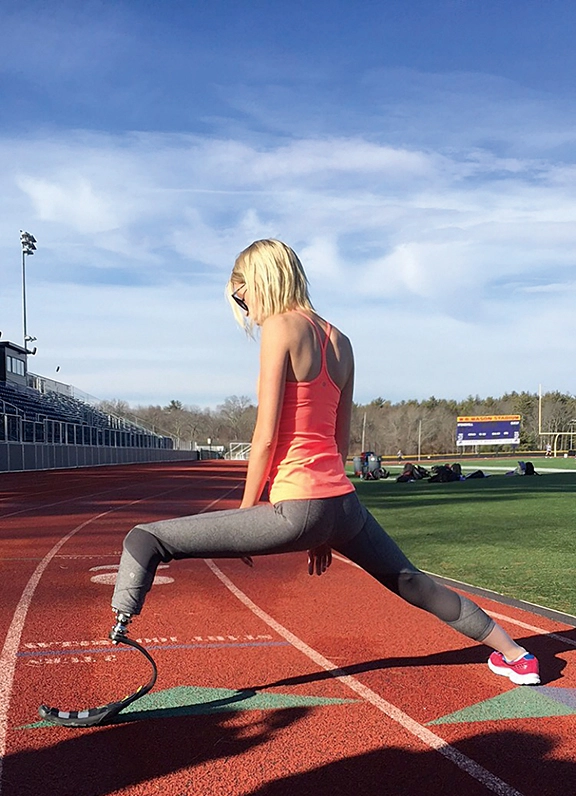By Scott McNutt
It’s a familiar tale: A person faced with amputation learns that his or her insurance doesn’t cover a prosthesis. Even those whose insurance does pay for one prosthesis often discover that their insurers won’t pay for additional prostheses needed to return to work, to engage in an active lifestyle, or for other reasons. Also, insurers may have one-prosthesis-per-lifetime clauses and will refuse to pay for a new one when a prosthesis wears out or otherwise becomes unusable, such as when a child outgrows one, even though such exclusions violate the Affordable Care Act.
And this assumes that an amputee has insurance—many don’t. What, then, can be done to secure a needed artificial limb? Following are some potential strategies for acquiring the prosthesis you need.
Appeal a denial. If you have insurance but your insurer denies you a prosthesis, don’t take no for an answer. Denials are always appealable. If your appeal is denied, and you believe it should not have been, you can take your case to your state insurance commissioner. “How to Work With Your Insurance Company” (http://tinyurl.com/hn6wykx) is a good primer for dealing with your insurer to obtain a prosthesis.
Seek assistance through a prosthetics manufacturer. Major prosthetics manufacturers want to provide prostheses to clients. Many will work with patients for whom their products have been recommended to research financial assistance options. Some have insurance facilitation specialists who will advocate for patients with insurance companies. Contact these firms to learn about your possibilities.
Find a sponsor. Prosthetics manufacturers, sports organizations, and charities sometimes sponsor amputees, giving them prostheses to help promote the group’s products or mission. Recipients of these sponsorships are often athletes, but not always. Contact the organizations’ public relations departments for more information.
Get help from your state. If you need a prosthesis to go back to work, your state vocational rehabilitation program may help. A list of all state vocational rehab offices can be found at http://tinyurl.com/nd4vspl.
Try crowdfunding. In this interconnected world, online crowdfunding enables people to raise funds from thousands of individuals. Companies like GoFundMe (www.gofundme.com) and Kickstarter (www.kickstarter.com) offer assistance and online platforms to put on fundraisers. Developing and coordinating an online fundraiser is a complex undertaking, so you may need someone versed in social media working on your project.
Participate in prosthetics research. Various organizations pursue research on limb loss and treatments for it. By volunteering for such studies, you may be able to try experimental prostheses. A list of such clinical trials can be found at http://tinyurl.com/hyppwcj.
Contact a charitable organization. Many charities are devoted to supplying amputees with the prostheses they need to live productive lives.
The following is a partial list of such charities
50 Legs
www.50legs.org
Amputee Blade Runners
www.amputeebladerunners.com
Cancer Survivors’ Fund–Prosthetic Limb Assistance Program
http://tinyurl.com/j6z44rl
Challenged Athletes Foundation
www.challengedathletes.org
Disabled American Veterans Charitable Service Trust
http://cst.dav.org
The Given Limb Foundation
www.givenlimb.org
The Heather Abbott Foundation
www.heatherabbottfoundation.org
Inner Wheel U.S.A. Foundation
www.innerwheelusa.com
Jordan Thomas Foundation
www.jordanthomasfoundation.org
Limbs for Life Foundation
www.limbsforlife.org
Limbs for U
www.limbsforu.org
Mending Limbs Organization
www.mendinglimbs.org
Miracle Limbs–Courage in Motion
www.miraclelimbs.org
P.L.A.Y. Foundation
www.playfoundation.net
Southwest Amputee Foundation (SAF)
www.southwestamputee.com
Steps of Faith Foundation
www.stepsoffaithfoundation.org
Variety–The Children’s Charity
www.usvariety.org
War Amps (Canada)
www.waramps.ca/home
Who Says I Can’t Foundation
www.whosaysicant.org
Wiggle Your Toes
www.wiggleyourtoes.org
Become an advocate for fair prosthesis insurance. If you can’t get a prosthesis through other means, consider joining others who are demanding changes to restrictive prosthesis insurance laws. Entering this fray will connect you with people who may know ways you can obtain a prosthesis. Who knows? You might also succeed in changing the law.
A Champion for Amputees

Adrianne Haslet lost her lower left leg in the bombing at the 2013 Boston Marathon. Although her insurance covered her prosthesis, becoming a member of the limb-loss community showed her how many other amputees don’t receive artificial limbs because of inadequate insurance. In defiance of her own trauma, she began fighting for better insurance protections for amputees.
Haslet teamed up with groups like the American Orthotic & Prosthetic Association, Amputee Coalition, and Mobility Saves to battle New York State’s restrictive prosthesis insurance rules. (Insurance available through the New York State Exchange Marketplace limited people with limb loss to one prosthesis for a lifetime.) With representatives of these groups, she testified before Congress on the insurance challenges facing amputees. Their efforts helped overturn New York’s insurance restrictions in 2015.
“It’s a ridiculous law, one leg a lifetime,” Haslet says. “I can’t even fathom it. I don’t even like saying it; it’s so wrong.”
Even with this success, Haslet knows that not all amputees are getting the help they need. That is why her Boston Marathon running team is raising funds for Limbs for Life, an organization that funds prostheses for those who can’t afford them.
It’s also why she has some advice for amputees who may be struggling with their insurers: Don’t neglect your emotional health.
“Often, at our most trust-hurting moments, we don’t reach out, but that is the time to reach out,” she says. “Reach out and get as much of a support system as you can. The emotional support is just as important as the physical needs for the amputee, especially at this time when they are susceptible both physically and emotionally.”

Haslet knows the importance of such support. While she was in the hospital recovering from her wounds, she sometimes felt terribly alone—and the thought of others feeling that way was heartbreaking to her.
So, in addition to her advocacy work, she decided to pursue another way of helping amputees. Last year, she established Sister Legs. This group brings together people with traumatic amputations and people with similar limb loss who have been through the recovery process. They share their experiences with the new amputees to help them through the recovery process.
“We just try to be there for them in whatever capacity we can,” Haslet says.
For more information, visit www.adriannehaslet-davis.com.



